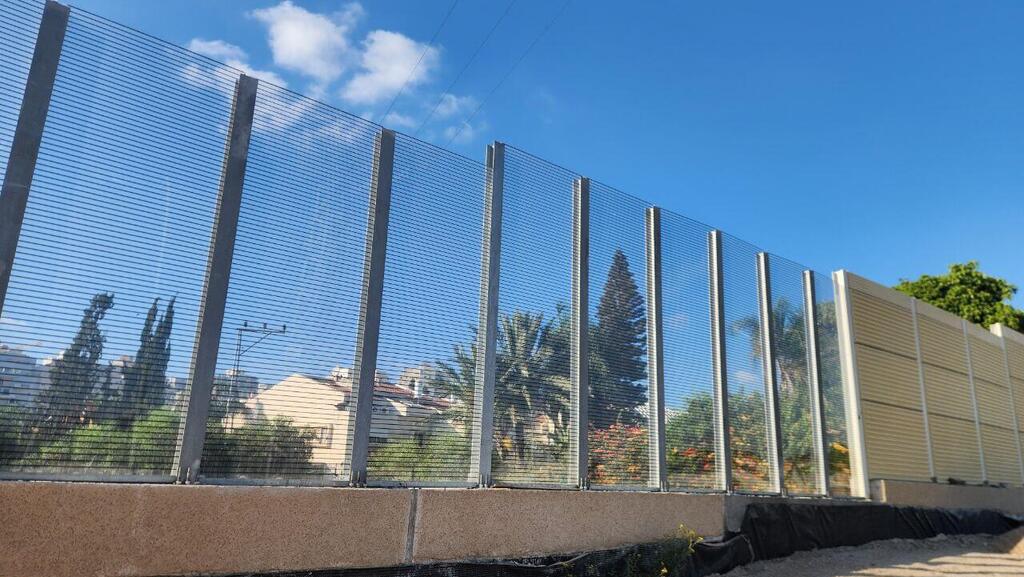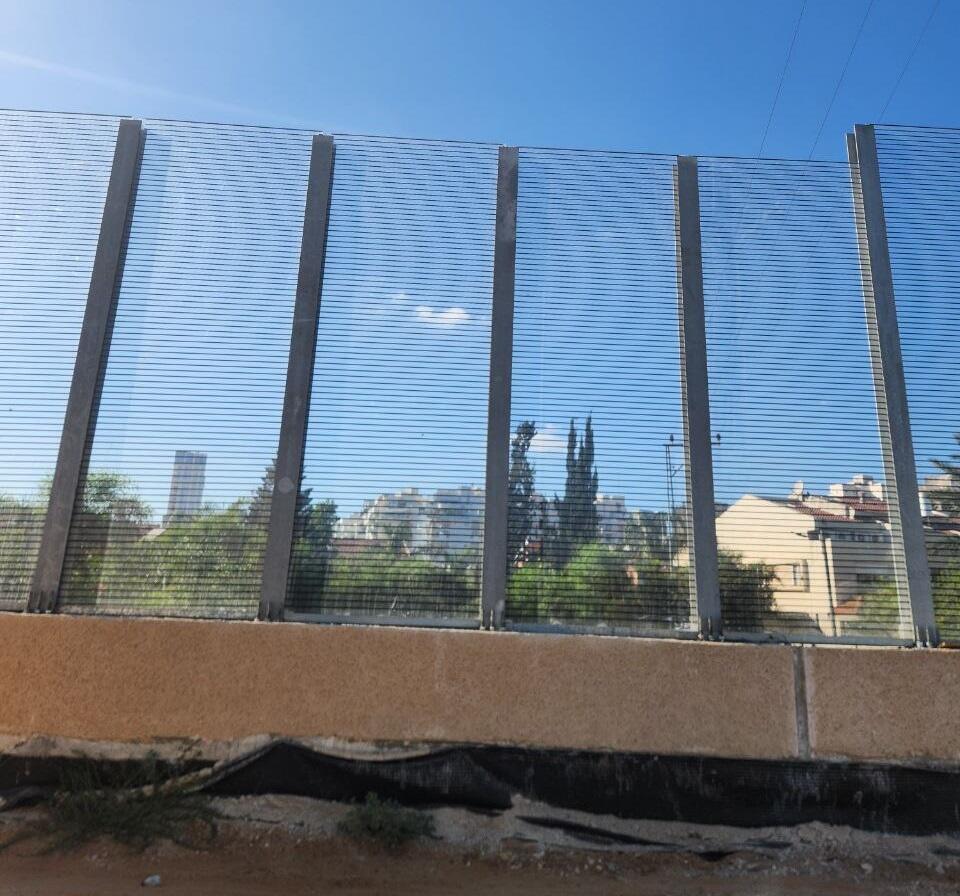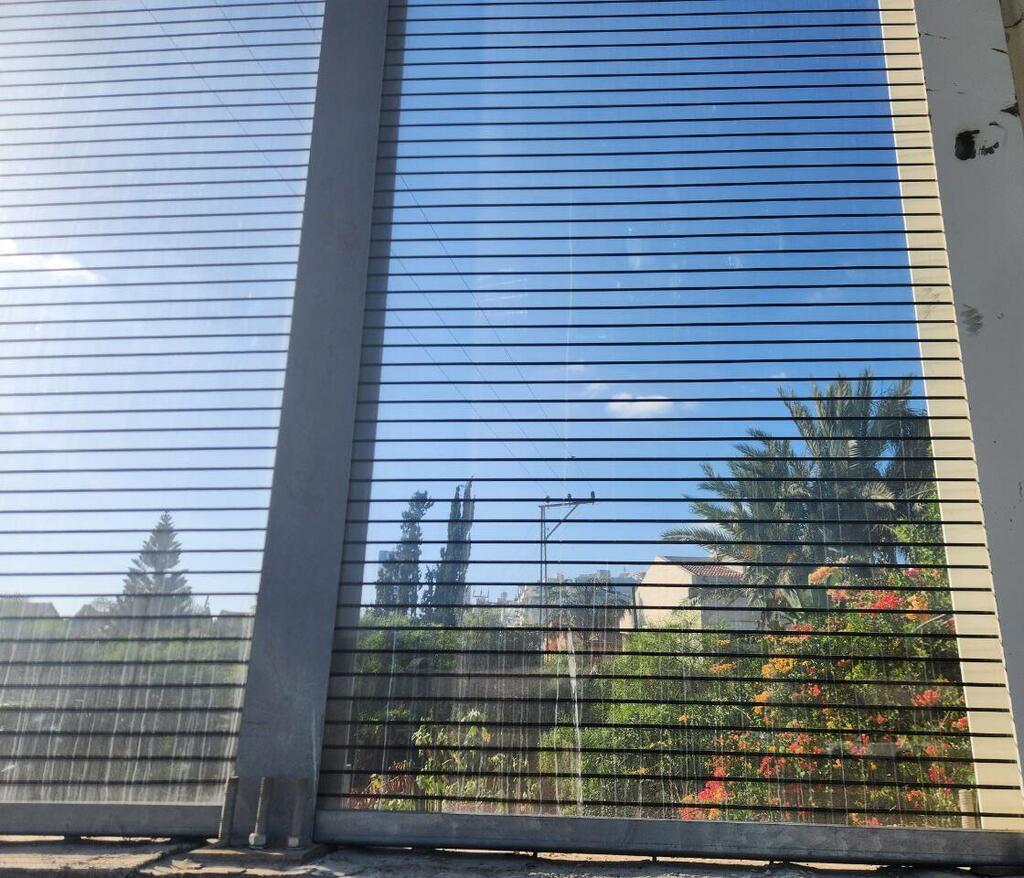Every year, hundreds of thousands of birds in Israel die due to collisions with windows and transparent acoustic walls. A recent study conducted in Israel revealed this as one of the deadliest threats to these wildlife species. The country, located on a major migratory route, has seen an increase in such incidents due to the massive construction of roads and additional acoustic walls.
Now, the Transportation Ministry via the Ayalon Highways Company is working to reduce the impact of these clear walls on Israel's bird population. Working In coordination with the Israel Nature and Parks Authority and the Society for the Protection of Nature in Israel, the ministry is currently installing bird-friendly acoustic walls along the Ayalon Highway (Route 20) and the Coastal Highway (Route 2), in cooperation with various municipalities.
Additionally, as part of a new project by the Transportation Ministry and Ayalon Highways which aims to facilitate rapid access to employment centers in the Tel Aviv metropolitan area via public and shared transportation, bird-friendly acoustic walls will be installed as well.
The transparent bird-friendly acoustic walls are designed according to principles aiming to prevent bird collisions with windows, including the use of markers like dots or lines, spaced densely at about 60% or more of the window's surface. This visual disruption causes birds to slow down or avoid the window upon noticing it. The denser the markers, the higher the likelihood that birds will completely avoid it.
In 2023, Yitzhak Cohen, a senior surveyor in the Society for the Protection of Nature in Israel’s Urban Nature Surveys Unit, conducted an initial survey of bird carcasses at an acoustic wall near the town of Mazra'a in northern Israel.
The survey’s results, funded by the Israel Nature and Parks Authority, revealed a very troubling reality: About 114,000 birds are killed for every 50,000 meters of transparent walls annually, without taking into account decay values, which test how long a carcass remains in the area.
"It’s very exciting to see that, like in many other countries around the world, Israel has begun to construct transparent noise barriers to prevent bird collisions. These transparent windows are a death trap for birds that can’t see them," Dr. Ariella Rosenzweig, a wildlife veterinarian who worked with the Transportation Ministry on the project, said.
“Infrastructure companies have decided to adopt collision-prevention methods out of an understanding that we share a common space with wildlife, and in a reality where every action we take has a significant impact on wildlife in general and birds in particular, it’s important to consider them and prevent harm as much as possible."
Dr. Yoav Perlman, director of the Society for the Protection of Nature in Israel’s Ornithological Center, added: "Birds don’t perceive transparent acoustic walls. To them, the window appears as a direct continuation of their flight path, and they don’t recognize the danger until it's too late. This problem is exacerbated when shrubs, trees and other features of their natural habitat are located beyond the wall.”
“There are over 100,000 square meters of transparent acoustic walls in Israel, and this number will significantly increase in the coming years due to the expansion of roads and residential neighborhoods,” he explained.
“The ecological importance of birds is immense and humanity benefits positively from their activities in disease control, seed dispersal, rodent control, mental health, recreation and more. Non-bird-friendly walls greatly contribute to the disappearance of our country's birds," he explained.
A new document authored by Dr. Dotan Rotem, an open spaces ecologist at Israel Nature and Parks Authority’s Science Division, alongside Perlman and Rosenzweig, outlines several principles for preventing bird collisions with transparent acoustic windows.
In recent weeks, Ayalon Highways has decided to adopt the principles outlined in the document for all new walls that will be constructed and is also exploring ways to apply them to existing transparent walls already built in the country.
"Marking transparent acoustic barriers to prevent bird collisions is another important step in the collaboration between infrastructure companies and nature conservation organizations,” Rotem said. “Taking action to reduce harm to nature is essential in a densely populated country where the interaction between nature and human settlements and the infrastructure that serves them is so tightly knit."




